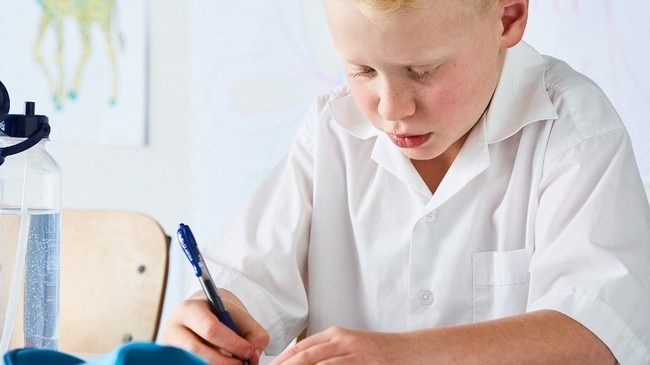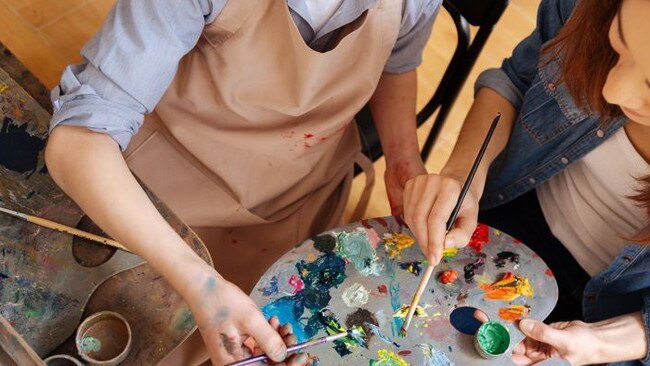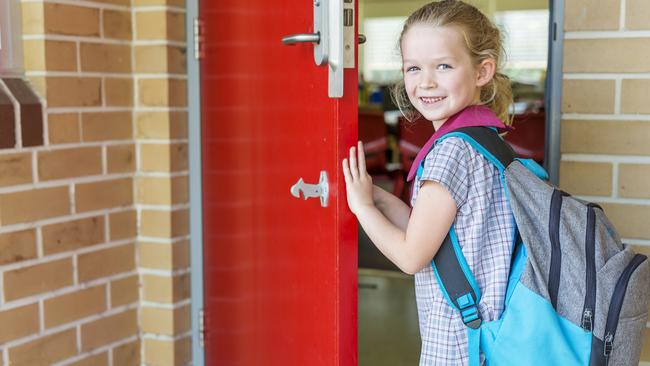David Penberthy: Australia needs to Marie Kondo its school curriculum
With subjects like dance and tourism now being offered, it seems school is no longer about teaching children what they need to know, but rather what they are happy to, writes David Penberthy.

Rendezview
Don't miss out on the headlines from Rendezview. Followed categories will be added to My News.
In the many years since my parents completed school, since I completed school and next year, when my daughter will complete school, the number of subjects on offer in Year 12 has more than tripled.
At the same time, with record amounts of money being invested in education, there is wide evidence that education standards have declined.
Last week’s Programme for International Student Assessment (PISA) results showed Australia’s international standing has plunged in reading, maths and sciences, down from 4th place worldwide in 2001 to 16th in 2018. NAPLAN has confirmed similar trends in many categories over the past 10 years, a period in which the amount of money spent educating our kids has increased by $20 billion.
My parents’ generation had barely a handful of subjects from which to choose upon studying for what was known as intermediate (Year 10), leaving (Year 11) and leaving honours (Year 11).
These were no-nonsense subjects such as maths, English, history, Latin, French, German, physics and chemistry. Vocational and trade skills such as woodwork and metalwork were confined to elective classes. Pursuits such as drama were set aside for the school play, and things like photography or dance were treated as an extra-curricular interest.

By the time I graduated from Year 12 in 1985, a whole bunch of new humanities subjects had crept into the curriculum, and there were new maths subjects specifically designed for students who weren’t very good at maths. Even being abjectly pathetic at maths wasn’t an issue at my school. I got 33 per cent in year 10 and never studied it again, and remain innumerate to this day, incapable of ordering the right amount of soil for a triangle-shaped garden without ringing my father. My school didn’t care about my failure, and was happy for me to load up in Year 12 with humanities, with biology as my only science.
Fast forward to 2019 and my daughter’s generation can at the Year 12 level study everything from food and hospitality to physical education, business and enterprise, a separate subject called business innovation, a subject called health and another called nutrition, and also media studies, which is no doubt doing a great job equipping the next generation of Media Watch hosts.
MORE FROM DAVID PENBERTHY: Our obsession with safety is making kids miserable
You can even study tourism as a subject. With no disrespect to the people who teach or study tourism, it’s hard to see how the concept of going on holiday has been elevated to the status of academic inquiry. I realise tourism is huge industry that employs many people and generates a lot of revenue, but I can’t comprehend how it is actually regarded as a subject that is on a par with maths, English, a language or the sciences.
It feels that the curriculum has shifted – perhaps in line with broader social thinking around the idea of children being equals – where it is no longer about teaching children what they need to know but what they are happy to know. Rather than challenging them, and deliberately confronting them with the big ideas that form the bedrock of western knowledge, we have created a path through school that minimises struggle.

There were many occasions during my children’s primary schooling where I was bemused and disappointed by the quality of the research projects the students were assigned – or, it seemed, were allowed to assign themselves.
This isn’t a crack at my kid’s school, as it merely appeared to be doing what every other school does these days. Students were allowed to do “research” projects into things they were already interested in, such as their favourite singers, or flimsy reports about sports they already enjoyed, rather than being tasked with wrapping their head around something that was alien and challenging.
MORE FROM DAVID PENBERTHY: Crackpot anti-vaxers have no right to object
I was delighted when in Year 6 my son’s class was given a term to do a project about European history, with each child being assigned a country. He came home saying “Latvia? What do I know about Latvia?”, which was precisely the point of the exercise.
By the end of the term he had a solid knowledge not just of the history of this Baltic nation but also the two defining developments of the 20th century, the rise of Nazism and the Cold War with the former Soviet Union, told through the prism of a hitherto-unknown country.
There is now a growing recognition Australia needs to “declutter” its curriculum to return to academic basics and give children a much better grounding in core subjects and skills. It was discussed at last week’s COAG meeting of Education Ministers and the Federal Government will be announcing changes in the new year.

There have been some articles recently about a school in Britain, in a fairly average part of London, that is achieving extraordinary results by adopting the same approach that defined my parents’ time at school.
Michaela School in Wembley offers a pared-down curriculum comprising English, maths, sciences, history and French, as well as music and art. Students spend more time studying English and maths than any other subject. The school has uniforms, compulsory homework and operates according to the motto “Work hard, be kind.”
Its grades are up to four times higher than the national average, with 54 per cent of students in year seven and above receiving marks of A and A-plus, compared with the national average of 22 per cent. At the highest years of schooling, 18 per cent of students are receiving A-plus results, compared with 4.5 per cent nationally.
The other thing the school has done? Banned mobile phones.
There’s a debate in Australia about whether, given phones are here to stay, it’s better to teach children how to manage their phone use than ban it outright. But given many adults can’t keep their hands off their phone while driving a car, it’s fanciful to imagine children can do so while seated at a desk.
The is my final column for 2019. Thanks you for reading, having a wonderful Christmas break, see you in the New Year.
Originally published as David Penberthy: Australia needs to Marie Kondo its school curriculum

